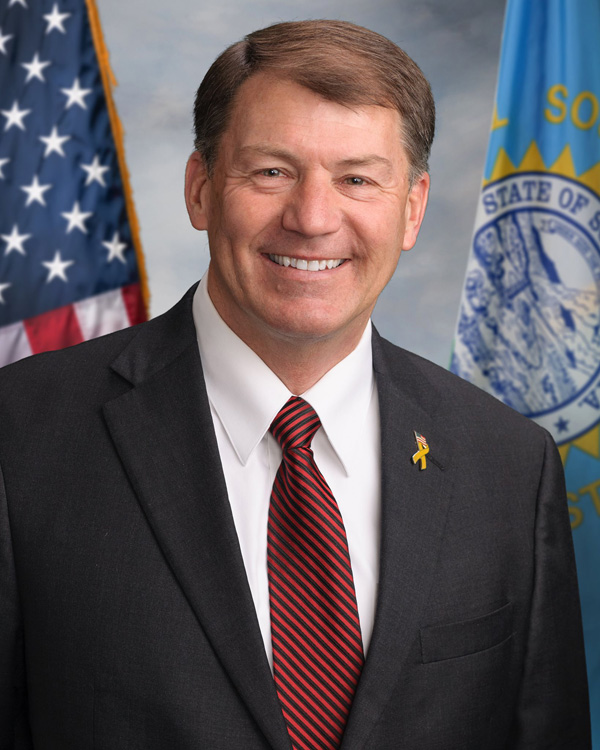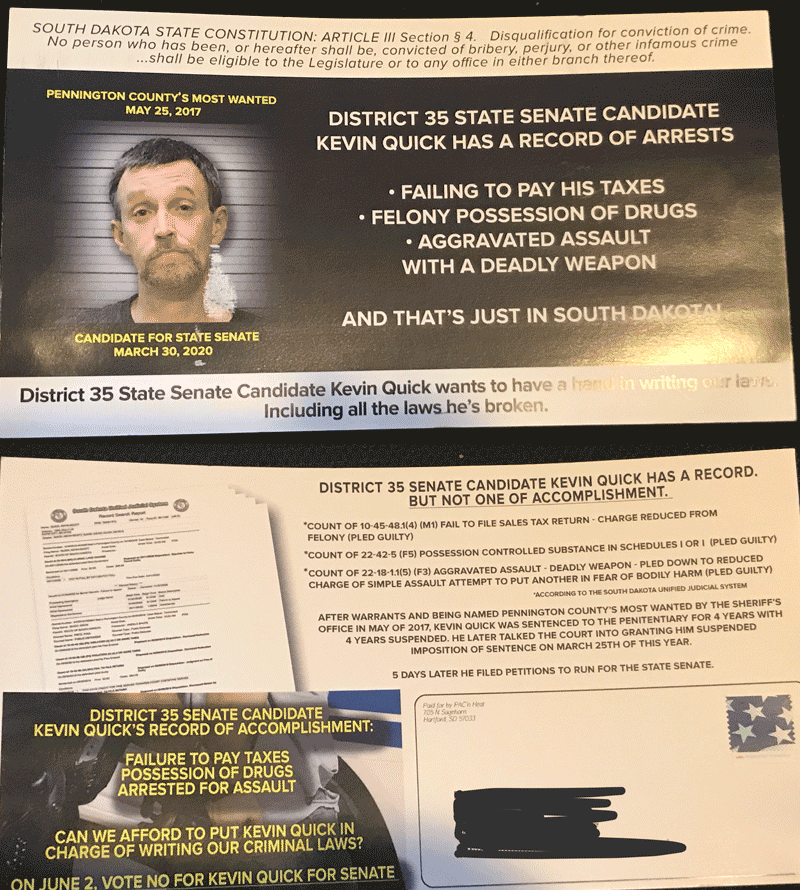Release: Dylan Clarkson, Craig Davis, Timothy Kintner and Pete Mehlhaff Elected to SDBA Board of Directors
Dylan Clarkson, Craig Davis, Timothy Kintner and Pete Mehlhaff Elected to SDBA Board of Directors
PIERRE, S.D.–The South Dakota Bankers Association (SDBA), the professional and trade association for South Dakota’s financial services industry, recently held elections for four of the nine seats on its Board of Directors. Elected to serve on the SDBA Board of Directors were:
- Dylan Clarkson, President/CEO, Pioneer Bank & Trust, Belle Fourche
- Craig Davis, President/CEO, First National Bank, Pierre
- Timothy Kintner, Regional President—South Dakota, Great Western Bank, Sioux Falls
- Pete Mehlhaff, President/CEO, Great Plains Bank, Aberdeen
This is Kintner’s first term on the SDBA Board of Directors and Clarkson, Davis and Mehlhaff’s second terms. They started their new terms on May 1, 2020.
Dylan Clarkson
Dylan Clarkson is president and CEO of Pioneer Bank & Trust in Belle Fourche. Prior to joining the bank in 2016, he began serving on Pioneer Bank & Trust’s Board of Directors in 2014. Clarkson previously worked for American Bank in Bozeman, Mont., from 2006 to 2016. At American Bank, he performed multiple duties including commercial lending, cash management specialist and Bozeman area market manager. Prior to his banking career, Clarkson managed new automobile dealerships in the Bozeman area. He has an economics degree from Montana State University in Bozeman.
Since relocating from Montana to Spearfish in 2016, Clarkson has actively supported many nonprofits across Pioneer Bank & Trust’s trade area—Black Hills Works, Belle Fourche Economic Development Corporation, American Heart Association and Special Olympics South Dakota. He previously served on a number of boards while in Montana.
Clarkson and his wife, Nicki, have two children, Ben (age 5) and Elyse (age 1).
“I look forward to proliferating the message that community banks play a vital role in South Dakota and the nation,” Clarkson said. “I would like to bolster the current momentum that the industry is gaining for ‘right sized’ legislation. Despite recent corporate tax reform and the boon that it created for many banks of all sizes, the legislation as we all know didn’t level the playing field for equal taxation of non-bank competitors.”
Craig Davis:
Craig Davis is the president/CEO of First National Bank in Pierre. After graduating from the University of Nebraska-Lincoln with a finance degree in 1991, he worked briefly for ITI (now known as FiServ) in Lincoln. He returned to Pierre in late 1991 and began his career with First National Bank as a loan review officer. Davis was later promoted to commercial lending and also served as the bank’s senior credit officer. Davis was named president/CEO in 2010.
Davis has been very involved in his community. He is a past president of the Pierre Chamber of Commerce and a past board member of the Pierre Economic Development Corporation, the Boys and Girls Club, Junior Achievement and the United Way. Davis has also served as a member of the Oahe Hockey Association and director of league play/scheduling.
Davis and his wife, Beth, have two children, Caden (age 19) and Avery (age 17).
“I want to work to find a way to ensure that community banks of all sizes in South Dakota are viable now and well into the future and also want to help invoke change in the regulatory arena,” Davis said. “I also look forward to networking with fellow SDBA members.”
Timothy Kintner:
Timothy Kintner has served as regional president of Great Western Bank since 2018, and oversees all banking operations in South Dakota and retail banking throughout the company. Kintner has more than 30 years of banking experience and has expertise in all areas of bank management and strategic bank planning. Before joining Great Western Bank, he held the position of executive vice president – regional banking markets and community relations for Bankers Trust Company in Des Moines, Iowa, since 2013. Prior to that, he served as president and CEO of Bankers Trust in Cedar Rapids, Iowa, and also president of Marquette Bank in Cedar Rapids. Kintner also spent several years in senior management positions with Wells Fargo.
Kintner is an active community member and currently serves on the board of the Sioux Empire United Way, the South Dakota Chamber of Commerce and Industry Economic Outlook Seminar Committee and Sioux Falls Downtown Rotary. He has also served on the SDBA Legislative Committee.
Kintner and his wife, Nancy, have an adult daughter (Kari) and son (Nathan). They also have three grandchildren.
“Banks play an important role in keeping our communities strong. I plan to work to support legislation that assists banks in this effort and also benefits our local economies,” Kintner said. “It is critical that regulation for banks and non-bank competitors makes sense in relation to each other. Advocacy for the banking industry will be a strong focus, with my goal being to educate both the public and legislators.”
Pete Mehlhaff:
Pete Mehlhaff, a fourth-generation banker, started his banking career 41 years ago. Mehlhaff served as a lending officer with U.S. Bank and Wells Fargo in correspondent and business banking departments in Aberdeen and Minnesota communities of Redwood Falls, Bloomington, St. Paul and Minneapolis. Mehlhaff returned to South Dakota in 1990, when he became president and chairman of Great Plains Bank—a $120 million community bank with offices in Eureka, Aberdeen and Eden. Mehlhaff completed an undergraduate degree at Northern State University and holds graduate degrees from University of St. Thomas (MBA) and Mount Marty College (MA). In addition to many banking programs, he is also a graduate of the Colorado Graduate School of Banking.
Mehlhaff, an ordained Catholic deacon, serves at St. Mary’s Church in Aberdeen. He is active in community affairs including former chairman of Presentation College Board of Trustees where he continues to serve as adjunct faculty. He was a founding director of the Eureka Area Community Foundation, former president of Aberdeen Area Catholic Foundation and currently serves on the Northern State University School of Business Advisory Board.
Mehlhaff and his wife, Paddy, have been married for 39 years and have five children.
“The banking community has not been successful in its attempts to change the tax policies that give Farm Credit System and credit unions an unfair advantage over banks,” Mehlhaff said. “I look forward to promoting reform that gives banks tax treatment similar to those competitors, thereby creating a more level playing field.”
A complete list of the SDBA Board of Directors is available at www.sdba.com/sdba-board-of-directors.
–30–







